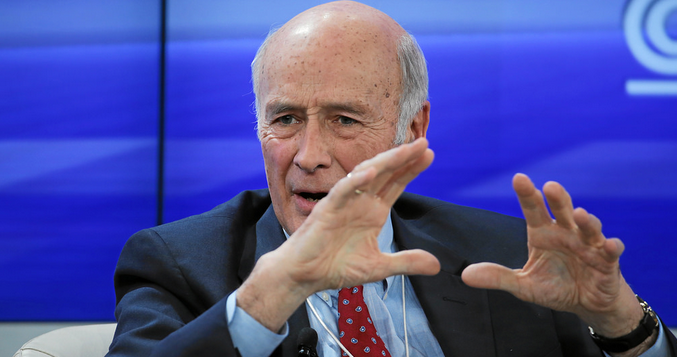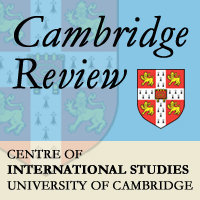
Nye: “Hegemony ain’t what it used to be, but then it never was.”
Book review: Is the American Century Over? Joseph. S. Nye, Jr. Polity, 2015. 152 pages, R$ 26,22 (kindle, amazon.com.br)
Cambridge Review of International Affairs
DOI: 10.1080/09557571.2015.1087709
Oliver Stuenkel
Published online: 07 Oct 2015
Is the ‘American Century’ over? No, says Joe Nye, but the continuation of it will not look like it did in the twentieth century. The rise of other powers will make it more difficult for anyone, including Washington, to wield influence. But then again, the United States never had complete control, even at the end of World War II, when US GDP temporarily represented half of the world’s economy. Nye rightly reminds readers that even then, the United States failed to have it its way in many instances, such as in 1956, when the US was unable to prevent Soviet repression of a revolt in Hungary, the French loss of Vietnam, or the Suez invasion by US allies Britain, France and Israel.
Contrary to many US liberal institutionalist thinkers, Nye even recognizes that the so-called liberal Western order did not look particularly benign or worth embracing to non-members of the club, such as India, China, Indonesia, Congo, Iran and Guatemala.
US hegemony was thus never global, but always partial — despite the fact that no previous country concentrated as much military and economic power as the United States in the second half of the 20th century.
While Nye remains vague on how exactly the ongoing shift of power will affect global order — for example, he does not even mention new Chinese-led institutions like the Asian Infrastructure Investment Bank (AIIB) — his reflections about the role of the United States are useful. They problematize some of the more facile narratives about a transition from an age of US dominance to a new era under Chinese leadership. Still, compared to the countless observers who predict a decline of US power, Nye comes across as a firm believer in the United States’ continued dominance: ‘If the “American century” began in 1941, will the US still have the primacy in power resources and play the central role in the global balance of power among states in 2041? My guess is “yes”.’
By then, he admits, China’s economy will be far greater than that of the United States. Yet he reminds the reader that, even after the United States turned into the world’s largest economy around the beginning of the 20th century, it took decades for policy makers in Washington to embrace global hegemony. In 1880s, he says, the US navy was still smaller than that of Chile. It remains to be seen to what extent pre-World War I America can be compared to China today. Contrary to contemporary China, the United States had never occupied a leading international role. China, by contrast, sees itself not as a rising power, but as a traditional power merely returning to its central role.
Returning to his flagship theme, Nye doubts China will be able to develop the soft power necessary to make others want to support Beijing’s rise. That implies that soft power was an essential element in the creation of today’s US-led order. However, the world after 1945 did not voluntarily hand the reigns of power to the United States. What is often overlooked in that context is that consolidating liberal order involved the stationing of US troops in the defeated Axis powers, threats and coercion against communists in Europe, and efforts — driven mainly by hard power — in all regions of the world to impose US political and economic preferences.
Nye recommends a continued US military presence in Asia’s neighborhood, assuring US control of security affairs on a global scale. A retreat of the US navy to the Western Pacific, he asserts, would indeed symbolize the “Post-American World”, and countries like Japan may start to side with China, rather than balancing its power. Yet Nye fails to answer just how this existing setup can grant Beijing the status and recognition it desires. Does he really believe that China in 2030, being the world’s largest economy by a considerable margin, will accept controlling just a few kilometers off its coastline before encountering a strong presence by the US Navy? It seems rather unlikely.
Is the American century over? is directed towards a non-academic readership and academics may criticize the way Nye cites authors from different theoretical camps without making clear who he agrees with. In the same way, it is notable that he only cites two Asian authors — Amitav Acharya and Yan Xuetong — considering that the book is essentially about the rise of Asia. Finally, considering its non-academic approach, and the author’s experience in government, Nye could have provided far more concrete ideas on how the United States should behave in the context of continued US primacy. Yet he remains fairly aloof, unwilling to engage in nitty-gritty policy proposals. Despite these flaws, the book provides, for non-specialists, an easily accessible introduction into a topic that is likely to dominate the global conversation for decades to come.
Continue here.
Read also:
Book review: “The future of Power” by Joseph Nye Jr.
Should China Care About Soft Power?
Book review: “China Goes Global: The Partial Power” by David Shambaugh









